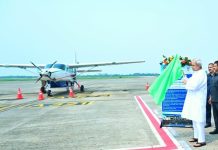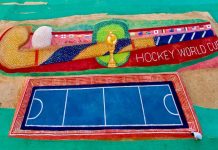Dr. Yogita K Adlakha, an Inspire Faculty Fellow, has developed human-based models to study neuron development and neurodevelopmental disorder such as autism which can help design treatment strategies for such brain disorders.
Since decades, animal models have been used to understand brain-related disorders, and the drugs which function in animal models have failed in clinical trials. The dearth of human models has led to lack of knowledge of the pathophysiology of such disorders, an essential requirement for designing their treatment strategies. Therefore, Dr. Yogita K Adlakha, a recipient of INSPIRE Faculty fellowship instituted by the Department of Science and Technology (DST), filled this gap by generating human-based stem cell model to understand brain development and dysfunction at the National Brain Research Centre, Manesar, Haryana. Currently, she works as a Scientist at Translational Health Science and Technology Institute, NCR biocluster, Faridabad.
Along with her research group, she established a protocol from India for the first time by generating and producing induced pluripotent stem cells (iPSCs) from human peripheral blood. They have further refined the protocol of differentiation of iPSCs into the brain-specific stem cells, i.e., neural stem cells (NSCs).
Her group has contributed immensely in understanding the role of microRNA in the neural stem cell fate, which revealed how certain small non-coding RNAs called microRNA, which do not form protein but regulate expression of other genes, can enhance differentiation of neural stem cells into neurons. Her research has contributed to expanding the knowledge of neuron development and the role of small non-coding miRNA in brain-specific stem cells fate, thereby changing the face of neuroscience and stem cells.
Dr. Yogita filled this gap and developed a human-based model that could help study how brain develops, particularly the neurons, and what goes awry during brain development leading to cognitive decline, impairment in language, and social interaction. Along with her group, she derived induced pluripotent stem cells (iPSCs) from human peripheral blood and differentiated them into neural stem cells (NSCs). Since levels of microRNA-137 are less in neurodevelopmental disorders such as ASD and ID, her study demonstrates crucial roles of this miRNA during human NSC fate determination with an elaboration of underlying molecular mechanisms. This study was published in the journal “STEM CELLS”.
Her study provides the first evidence that a brain enriched miRNA-137 induces neuronal differentiation and inhibits proliferation using human neural stem cells derived from iPSCs. During the study, it was observed that miRNA-137 not only accelerates mitochondrial (powerhouse) biogenesis but also induces oxidative phosphorylation, generating ATP or energy currency of the cell. This resulted in increased mitochondrial content, which is actually necessary for the newly born neurons. Decrease in proliferative capacity of NSCs with age leads to compromised regenerative ability of the brain. The findings of her study by revealing the NSC differentiation induced by miR-137 can facilitate the design of treatments for aging-associated neurodegenerative diseases and ASD and ID.
Decrease in proliferation of brain-specific stem cells with age leads to compromised regenerative capacity of the brain. In her present work, she proposes that differentiation of brain-specific stem cells induced by a small non-coding miRNA may promote the design of treatments for aging-associated neurodegenerative diseases and autism.
“My research using DST INSPIRE fund has definitely contributed to expanding the knowledge of neuron development and neurodevelopmental disorder such as autism and the role of small non-coding miRNA in brain-specific stem cells fate,” adds Dr. Yogita.














